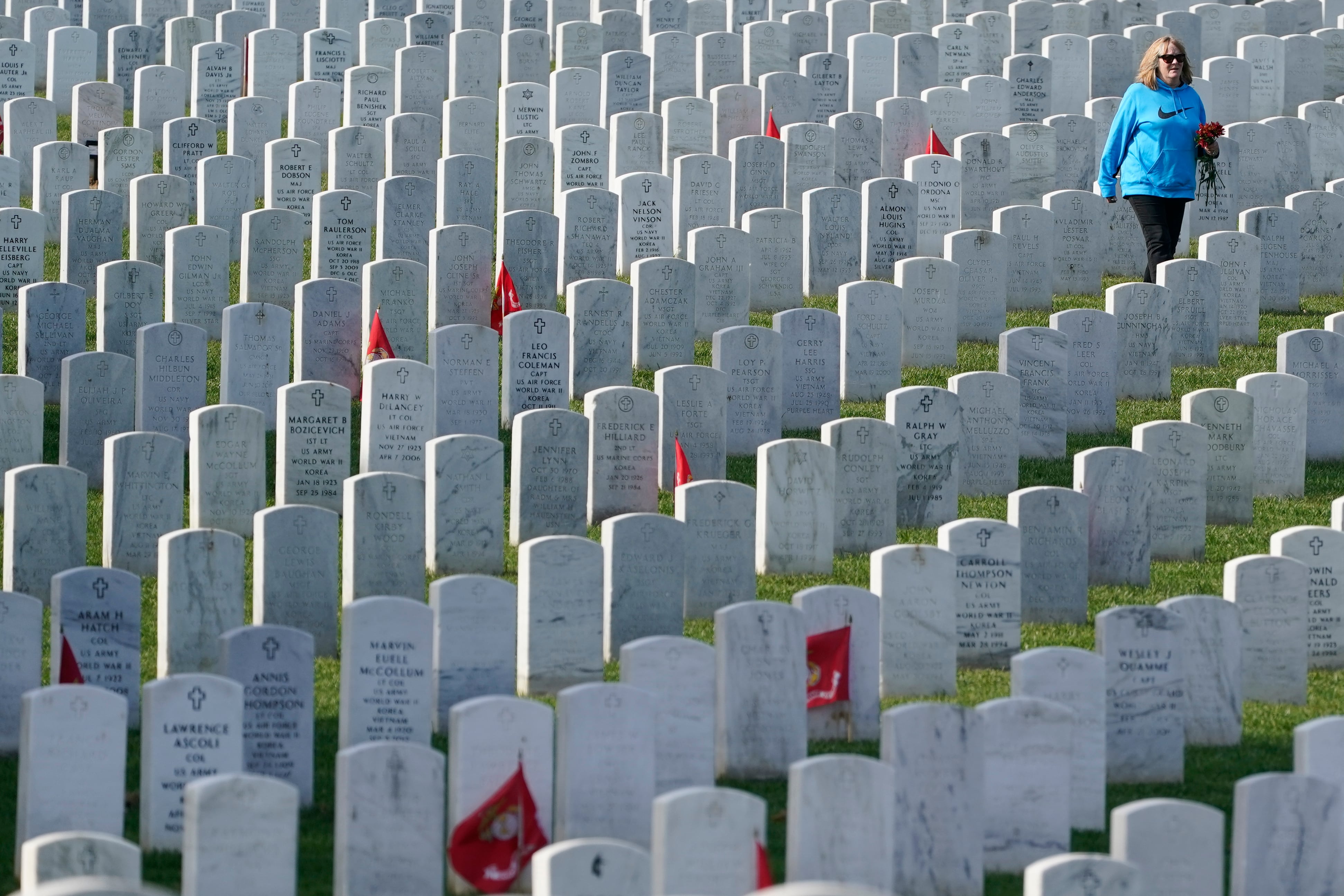After 30 years in a place of honor at Arlington National Cemetery, the remains of a former Navy lieutenant who kidnapped and murdered a sailor who rebuffed his attentions will be disinterred.
Former Lt. Andrew Chabrol secured above-ground burial for himself in the nation’s most revered veterans’ cemetery while awaiting his execution by the Commonwealth of Virginia in 1993 for the murder of Petty Officer 2nd Class Melissa Harrington.
At the time, the Navy simply did not have legal grounds for excluding him, since he’d completed his service honorably. But in early 2019, a small group of veterans, including her husband, spoke out, telling this reporter in a story for the Washington Post about the lasting trauma of Chabrol’s crimes and how disturbed they were by his repose in Arlington.
Now, they say, Harrington is getting a measure of justice long denied to her.
Passed in December 2022 in the fiscal 2023 National Defense Authorization Act was a provision introduced by outgoing Rep. Jackie Speier, R-California, that requires the secretary of the Army to remove Chabrol from Arlington by Sept. 30 and transfer his remains to next-of-kin. Or, if no one responds to the Army’s request, to dispose of the remains as deemed appropriate.
RELATED

An earlier version of the provision would have given the Army and Department of Veterans Affairs, who administer Arlington and U.S. veterans cemetery issues, authority to review other cases in which veterans had committed capital crimes. Ultimately, though, Congress opted to keep the change specific to Chabrol’s case.
“It was appalling to me to think that an officer in the Navy could sexually harass, then kidnap, then rape, and then murder a sailor and get buried at a national cemetery, which is supposed to honor our war heroes and our dead,” Speier told the Post in a June 2022 interview. “So he has no place in that cemetery.”
Judi Farmer, a retired Navy senior chief petty officer who began agitating for Chabrol’s removal from Arlington after learning about the case in 2018, told Navy Times that the disinterment would bring solace and relief, not just for those who knew and loved Harrington, but also for sailors who’ve sustained sexual assaults or trauma while serving.
“I think that, especially for those of us who are [military sexual trauma] survivors, it provides a little bit of comfort that justice is served; that she wasn’t forgotten,” Farmer said. “And that in the end, the military and our representatives do the right thing.”
Farmer said she was interested to learn about the timing and circumstances of Chabrol’s pending removal in hopes of marking the occasion, respectfully and with a few of Harrington’s loved ones, at her graveside in Norfolk, Virginia. The exact date of the disinterment, however, is likely to be kept private.
John Harlow, Arlington National Cemetery’s media relations officer, told Navy Times via email that the cemetery would schedule the disinterment after coordinating with Chabrol’s family members. When the removal took place, he said, it would not be open to the public.
“The disinterment of human remains is a private family matter and is handled in a dignified manner without ceremonial elements,” he said.
‘Beyond redemption’
The circumstances of Chabrol’s crimes are chilling.
Harrington, just 27 at the time of her death, had complained to Navy superiors about Chabrol’s intimidating behavior when the two served together in a Virginia Beach unit. The 34-year-old officer was allowed to complete his term of service and leave the Navy.
But in 1991, he kidnapped her from her home, bringing her to his own house, where he and an accomplice raped and tortured her. When she managed to free one of her bound hands and hit Chabrol, he “went berserk,” according to his own testimony, and strangled her to death.
Chabrol was quickly arrested after Harrington’s disappearance, and her body was discovered rolled into a rug inside his home. Court testimony would reveal that he had been plotting “revenge” against Harrington for months in a journal, calling his sick plan “Operation Nemesis.”
When death-row chaplain Russ Ford encountered Chabrol in prison, he described him as “fundamentally evil and beyond redemption,” according to a memoir out in March. Ford also describes the foul satisfaction Chabrol got from securing a burial spot in Arlington.
“The national honor elated the demoniac,” Ford wrote. “This monster would rest among heroes.”
Joe Harrington, Melissa Harrington’s widowed husband and a Navy veteran himself, said telling her story publicly had been difficult
“It’s amazing,” he said. “I really did not think that this was something that would go to that level, that people would take task on it and make it happen.”
Joe Harrington said he felt especially thankful to Farmer, who acted to right what she saw as an injustice even though she’d never known Melissa Harrington.
“I’m looking forward to going to Arlington later this year to visit my friends after I know that [Chabrol is] gone,” Joe Harrington said. “Just to have that feeling of, hey, this is the place to honor the folks that are here. So that’s good.”
For her part, Farmer said advocating for victims and seeking justice will continue to be a motivating cause for her.
“Andrew [Chabrol] felt that it was his last act of thumbing his nose at [Melissa Harrington] to be buried in Arlington,” she said. “So it’s nice for her to get the last word.”
Hope Hodge Seck is an award-winning investigative and enterprise reporter covering the U.S. military and national defense. The former managing editor of Military.com, her work has also appeared in the Washington Post, Politico Magazine, USA Today and Popular Mechanics.




